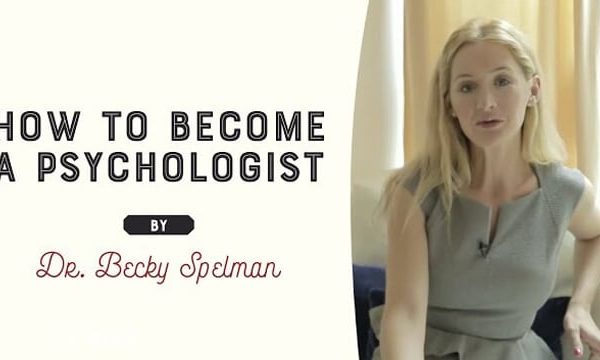What is the Difference Between Clinical and Counselling Psychologists?
There is an overlap between the work of Clinical and Counselling Psychologists—but what are the similarities, and what are the differences?
Both Clinical and Counselling Psychologists start their careers with an undergraduate degree in Psychology. At post-graduate level, while many subjects are common to the two qualifications, there are some differences: for example, a greater emphasis on neuro-psychology in the case of Clinical Psychology. Overall, Clinical Psychologists receive more training on issues relating to serious mental illness, whereas Counselling Psychologists receive more training on patient-centred theoretical approaches to care. However, both are ultimately awarded a doctorate, and licensed to work with patients. In the United Kingdom, both are eligible to register with the Health Professionals Council, which is a prerequisite to practice. Their qualifications are also recognised overseas. Both are qualified to apply psychometric tests, to engage in research, and to interact with patients in a range of treatment modalities.
Historically, given the slight differences in their training, Clinical Psychologists have tended to work a little more with patients with serious mental illness, whereas Counselling Psychologists have tended to work mostly with patients without serious mental illness.
In practice, however, increasingly both types of Psychologist work with a wide range of patients, and in similar settings, and both have access to a full range of further training as they engage in ongoing professional development, reducing the already slight differences between their theoretical approach and their academic expertise.
In many clinics, such as Private Therapy Clinic, there are effectively no differences between Clinical and Counselling Psychologists when it comes to the sort of care and treatment that they can offer, and both are fully qualified and prepared to deal with an extremely wide range of patient needs.
Clinical and Counselling Psychologists alike can offer their patients a range of treatment modalities, typically including Cognitive Behavioural Therapy, among others. Both work closely with their patients to reduce feelings of distress and anxiety, and to enhance their sense of well-being and happiness. Both work with patients with a wide range of problems, which can include addiction issues, anxiety, depression, and much more.
Neither Clinical nor Counselling Psychologists prescribe medication, although both can work in cooperation with Psychiatrists, who can prescribe medication for those patients—typically those with an underlying mental illness—who would benefit from medication alongside talk therapy.
If you need support and help from a Psychologist, you can trust any good clinic to ensure that you are matched with the Therapist you need, regardless of whether they are formally qualified in Clinical or Counselling Psychology.
WHO CAN I SPEAK TO FURTHER ABOUT THE ISSUES IN THIS ARTICLE?
For help with the issues discussed in this article speak to one of our therapists here at Private Therapy Clinic for a free initial chat or to make an appointment.
REFERENCES
Gelso, C.J., Williams, E.N. & Fretz, B. (2014). Counseling Psychology (3rd ed.). Washington, D.C.: American Psychological Association.
Imel, Z.E. & Wampold, B.E. (2008). The importance of treatment and the science of common factors in psychotherapy. In: Brown, S.D. & Lent, R.W. Handbook of Counseling Psychology (4th ed). New York: Wiley.
McFall, Richard M. (2006). “Doctoral Training in Clinical Psychology”. Annual Review of Clinical Psychology. 2 (1): 21–49.
In this video Dr Becky Spelman offers advice on how to become a clinical or counselling Psychologist in the UK. Dr Becky talks about tips on how to get in to Doctorate training courses in either Clinical Psychology and Counselling Psychology. This video includes advice on how to get trained as quick as possible and also discusses the difference between Clinical and Counselling Psychology as well as ideas on how to get work experience in the field of Psychology.
Video Transcript
I’m Dr. Becky Spelman, and I’m going to talk about some career advice for people who would like to be either a clinical psychologist or a counselling psychologist.
So first of all, you’re going to need to do a psychology undergrad degree. If you’re in the UK, this is typically three years long. If you’re based in Ireland, it’s going to be about four years long. After this, you, or during, this you should be getting lots of work experience. In my case, when I was doing my undergrad, when I was in my third and final year, I was getting experience in an eating disorder service, anxiety service, and I was also working with addictions. This is all volunteer work in a supportive capacity. I was a volunteer for these various different charities. And it was all adding to my CV in terms of support work. These weren’t counselling roles because I didn’t have that experience or training as of yet.
And then when I wanted to go on to get my doctorate, I applied to every single doctorate course in the UK for counselling psychology. Now, counselling psychology is a paid training course. However, I wanted to get on to the course quite quickly so I could train quite quickly and then get my career so I could start earning money.
That’s not always the case of everyone. Some people want to get on to clinical psychology which is funded by the government. And for people who can’t take out student loans or, for whatever reason, can’t afford to go down the paid route, they can try to apply for clinical psychology places. However, clinical psychology is far more competitive because it’s a funded course. And if you’re looking to train as soon as possible and get qualified as soon as possible, I would highly recommend going down the counselling psychology route. There’s very little difference in the training because you’re going to end up, if you want to go into therapy, you’re going to end up as a therapist at the end of it.
Of course, there is some other career route you can go into it afterwards but if you’re interested in the therapy side of things, both clinical psychology course and a counselling psychology course are going to give you the same qualification at the end of the day, provided your course is eligible for HCPC accreditation.
So a lot of people that I meet go on to do masters and they end up doing non-accredited courses as different postgrads before they actually trained as a psychologist. Now, for someone who wants to get trained fast and spend as little money as possible on getting qualified, the most direct route is do your undergrad, get some experience and then go straight to your doctorate. There is no need to do a master’s. And that’s a mistake that commonly, a lot of people make. You don’t need a master’s in order to go and do a doctorate.
In my case, I went straight for my undergrad degree with no gap year or anything, straight on to my doctorate because it was a numbers game. I just applied to every single course available. I didn’t have particularly good grades or anything but I got offered two places on two different doctorate courses. I chose a course up north as my preferred place of study mainly because it was more affordable than living in London.
So really, the advice is to find the HCPC courses, apply to all of them. If you really do want to become a registered psychologist in the UK, I feel it’s a numbers game, numbers in terms of getting the most experience you can possibly get by volunteering for as many relevant organisations as you possibly can and then also a numbers game in terms of the applications that you make to doctorate training courses.
And it is really surprising to me, the number of students that I meet who are studying psychology who haven’t been given the right advice and then go on and waste £10,000 or more on masters that is actually not going to lead to them being a fully righteous true psychologist.
So my advice to many people is just make sure that you’re doing a course that is leading to accreditation particularly if you’re at postgraduate level. Spend a lot of time on trying to get internships. You can apply to clinics and organisations which will allow you to volunteer so you get a little bit of experience. It is very difficult to get face to face experience as a counsellor without any counselling training so don’t expect to be shadowing counselling sessions or anything like that. But if you can put yourself in the role of a supportive listener in any shape or form, this is all relevant experience that you can put on your CV.














